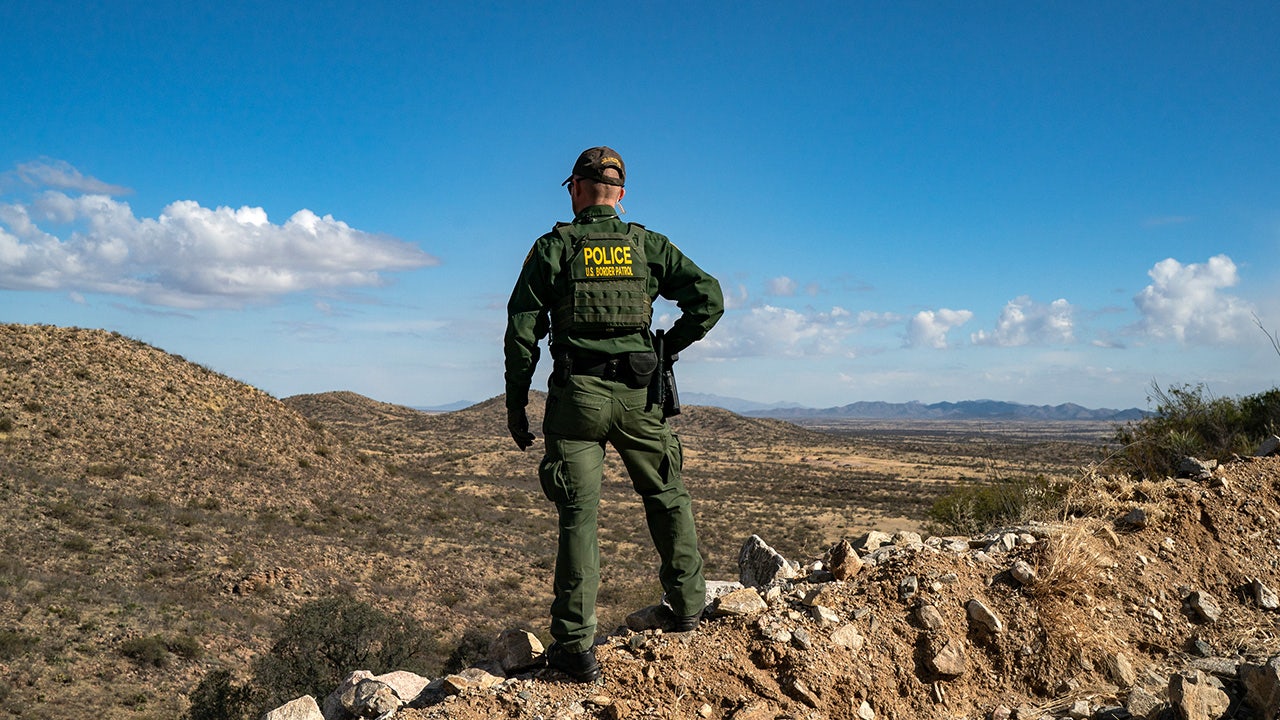President Biden is considering executive action that could prevent people who cross illegally into the United States from claiming asylum, several people with knowledge of the proposal said Wednesday. The move would suspend longtime guarantees that give anyone who steps onto U.S. soil the right to ask for safe haven.
The order would put into effect a key policy in a bipartisan bill that Republicans thwarted earlier this month, even though it had some of the most significant border security restrictions Congress has contemplated in years.
The bill would have essentially shut down the border to new entrants if more than an average of 5,000 migrants per day tried to cross unlawfully in the course of a week, or more than 8,500 tried to cross in a given day.
The action under consideration by the White House would have a similar trigger for blocking asylum to new entrants, the people with knowledge of the proposal say. They spoke on the condition of anonymity to discuss internal deliberations.
The move, if enacted, would echo a 2018 effort by President Donald J. Trump to block migration, which was assailed by Democrats and blocked by federal courts.
Although such an action would undoubtedly face legal challenges, the fact that Mr. Biden is considering it shows just how far he has shifted on immigration since he came into office, promising a more humane system after the Trump years.
Mr. Biden has taken a much harder line as the number of people crossing the U.S.-Mexico border has reached record levels and the chronically underfunded and understaffed asylum system reaches a breaking point.
Still, even if Mr. Biden tried to take unilateral action to cut down on the number of people claiming asylum, a lack of resources would still be an enormous obstacle to any major changes at the border. U.S. officials have said that they needed a massive infusion of cash to hire Border Patrol agents and asylum officers and to expand detention facilities.
A White House official, who spoke on the condition of anonymity to talk about plans under discussion, said no decisions had been made.
But the people with knowledge of the proposal said Mr. Biden could cite his authority to act under Section 212(f) of the 1952 Immigration and Nationality Act, which allows the president to suspend immigration for anyone determined to be “detrimental to the interests of the United States.” Mr. Trump used the same authority to impose a ban on people from several predominantly Muslim countries during his presidency.
Lee Gelernt, a lawyer with the American Civil Liberties Union who helped argue against the Trump effort, said his group would challenge such a policy.
“The courts were emphatic that the Trump administration could not deny asylum based simply on how one entered the country,” Mr. Gelernt said. “Hopefully the Biden administration is not considering recycling this patently unlawful and unworkable policy.”
But a legal fight, regardless of the outcome, could allow Mr. Biden to try to neutralize one of his biggest political vulnerabilities — the chaos at the southern border. Republicans have repeatedly used the border crisis to portray Mr. Biden as weak on enforcement. A legal battle would allow him to spotlight Republicans’ refusal to provide him the power to crack down at the border through legislation.
The Biden administration has spent several years trying to curb migration, in part by limiting asylum for those who crossed through Mexico on their way to the United States. That policy made it more difficult for migrants to obtain asylum if they crossed through a third country on the way to the United States and did not apply for protections there.
But while the policy restriction raised the bar for migrants to gain asylum, U.S. officials cannot carry it out properly without the kind of resources Mr. Biden had hoped that Congress would approve. The failed bill would have provided billions in funding, including the hiring of thousands of asylum officers to process claims.
Some of the circumstances at the southern border are well beyond the president’s control, including historic migration across the hemisphere from Venezuela, Haiti, Honduras and other countries facing instability, violence and natural disasters.
But Mr. Biden is under pressure from both parties, not just from the usual Republican critics, to do something. And the crisis does not stop at the border itself: Gov. Greg Abbott of Texas has sent busloads of migrants to Democratic cities far to the north, saying he wanted to “take the border to President Biden.”
Cities found themselves overwhelmed as migrants — often without coats, or family members in the United States — arrived. Leaders in the president’s own party started issuing cries for help.
That pressure has scrambled the politics of immigration in an election year, giving Mr. Biden much more room to support border measures once denounced by Democrats and championed by Mr. Trump.
Mr. Biden has directly blamed Mr. Trump for using his influence over the G.O.P. to kill the same bipartisan immigration deal that Republicans had been demanding for years.
Mr. Biden predicted in a speech earlier this month that Republicans would move to block the bill. “Why? A simple reason,” he said. “Donald Trump. Because Donald Trump thinks this is bad for him politically.”
Jonathan Swan contributed reporting from Washington.






